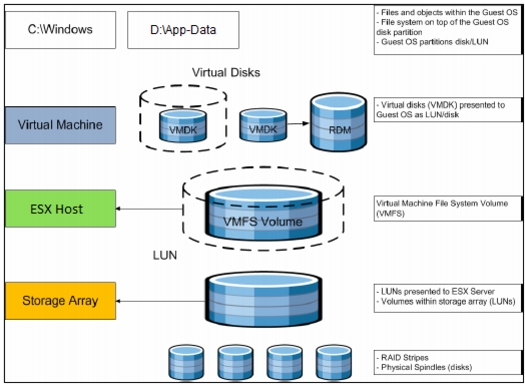First step is to understand the meaning of server virtualization. Its probabilities are buzzed among important personalities, but without full knowledge, it is difficult to understand server virtualization’s most vital benefits.

Server Virtualization – Definition
It is a process of splitting a single physical server into a few sections. This enables each of the virtual servers to operate autonomously. Each one can work in accordance to their personal operating system and utilize only the needed amount of memory. Your overall business comprises of different divisions, which can be synchronized on a single server. In general, this will make virtual infrastructure an important data storage strategy for every business.
Top reasons how virtual infrastructure is beneficial
Empower employees – Some organizations allow their employee to work in accordance to their comfort. For example, your graphic designers use Mac, while accounts team find working on Windows comfortable. This can be attained easily through a virtual infrastructure.
In addition, each department will not have to maintain their individual physical server. If there is any compatibility issue between existing software and hardware with a new module, then it can be resolved very fast, because of the centralization of virtual servers.
Decreases hardware costs – In general, physical servers are extremely underutilized. It is estimated to make use of just 5% to 15% of their capacity. With virtualized server approach, the use of hardware increases, because no physical server holds multiple virtual machines.
The apps do not need a personal server, because of each virtual section on physical server operated them. IT department expenses on hardware and software gets reduced to approximately 40% with the adoption of virtual infrastructure.
Fast provisioning and deployment of servers – Users can clone an existing virtual server within minutes. Thus, save considerable cost and time spent on buying, installing, and configuring a new physical server. In addition, how can you forget the cables and racks necessary to accommodate the several physical servers? For majority of businesses, server virtualization is necessary to handle the outburst of data resources, which is vital to attain a competitive edge.
Enhances disaster recovery – The greatest advantage of virtual infrastructure is its potential to shift a virtual mechanism from one server to the other safely and rapidly. Thus, backup of vital data can be conducted effectively and quickly, because your business can create a replica site effortlessly. There are apps that allow you to automate the failover in case of disaster. Your data gets recovered safely and swiftly, which is impossible with an array of physical servers.
Saves energy costs significantly – The relocation of physical servers to virtual environment allows you to join them into few physical servers. Thus, the power cost for cooling gets reduced significantly. According to great IT support Los Angeles, consolidation of servers decreases 80% energy costs without affecting the users or applications.
Enhances staff productivity – Few physical severs need less staff to manage and maintain. The aspect of installing the servers, setting the OS, and configuring the apps took weeks, but today it is conducted within minutes. Thus, your IT staff gets time to spend more on productive tasks like creating new business initiatives, raising revenue, and cutting expenses.
Operating on farm of servers or a physical server is complicated. It needs extra manpower, funds, and space. Virtualized solution can make all the tasks feel streamlined and attained at a reasonable cost.










Comments are closed.